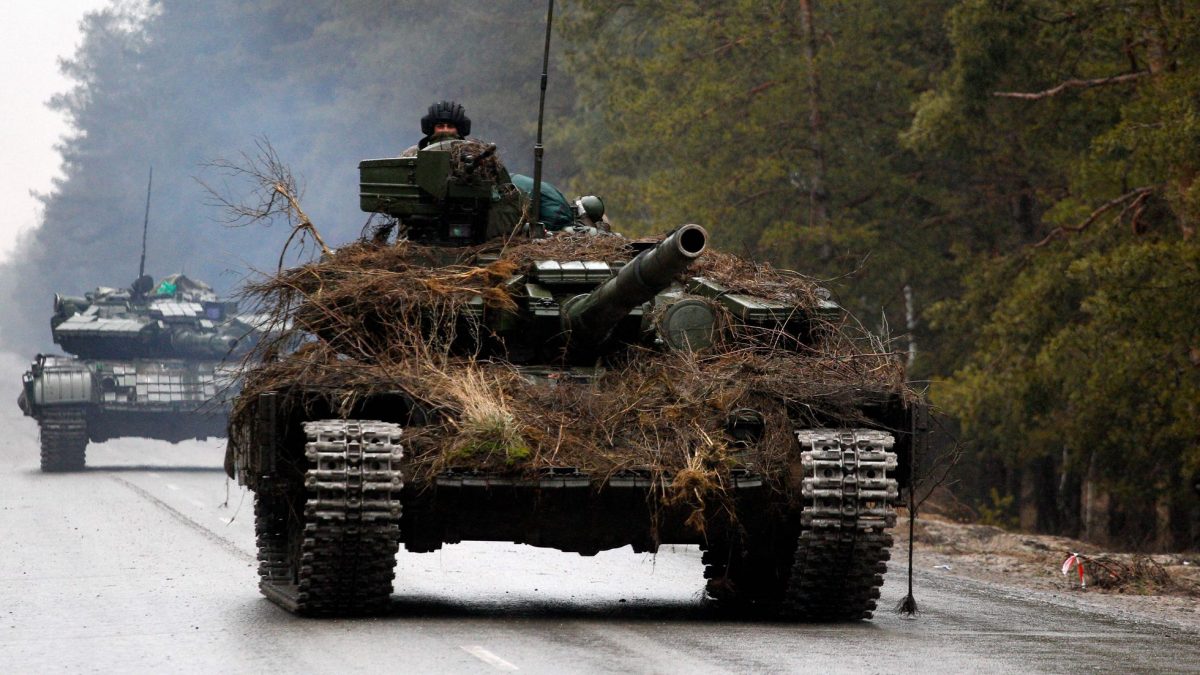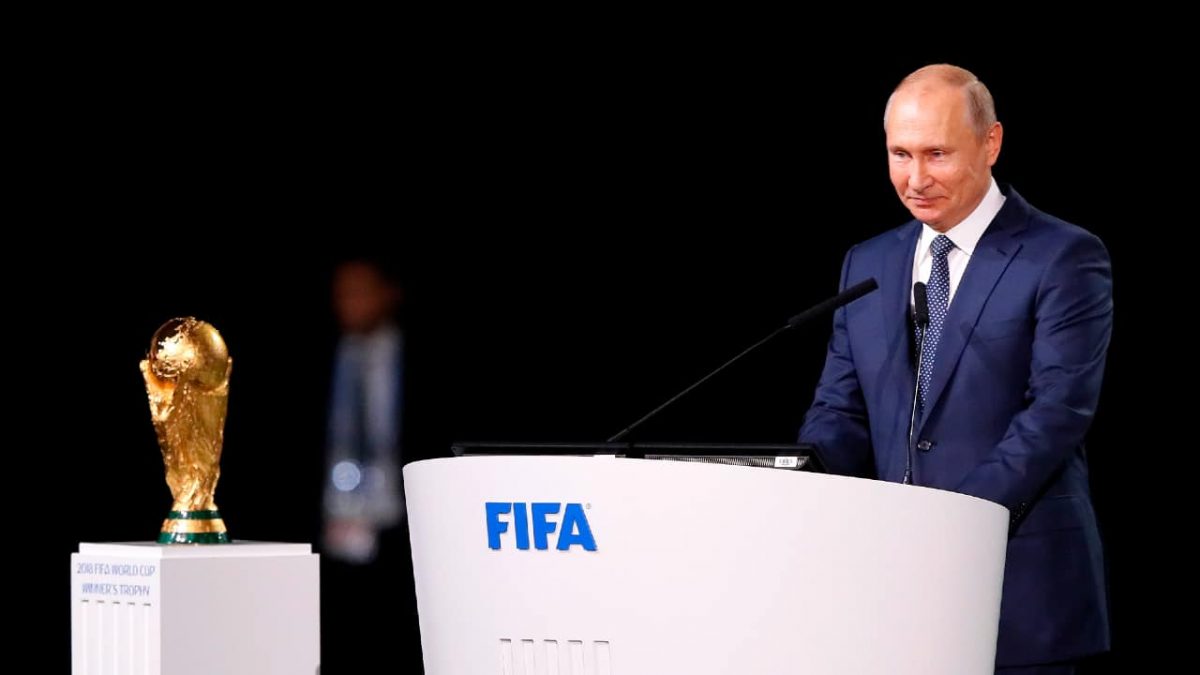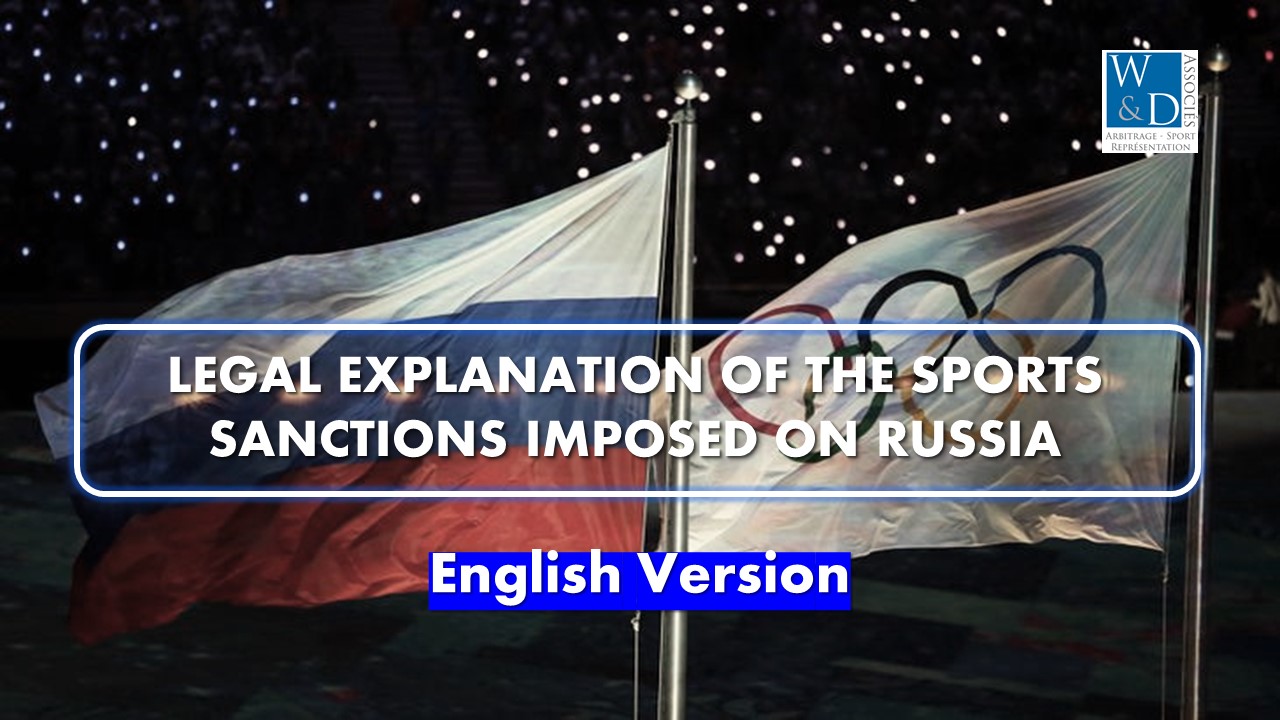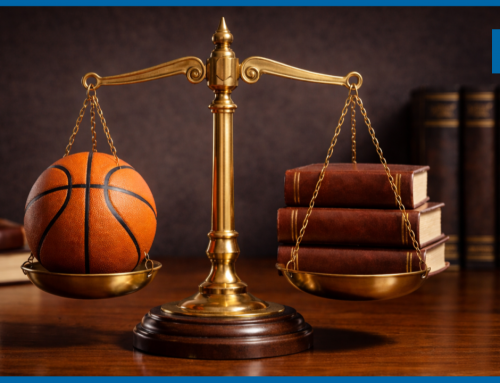Published and translated by the firm Winter – Dávila & Associés
Paris, 02 mars 2022

Author: Miguel Ángel Dávila
Lawyer from the University of Lima (Peru); Master 2 in sports law from the Université Paris 1 – Panthéon Sorbonne (France); arbitrator of the Chamber of Conciliation and Dispute Resolution (CCRD) of the Peruvian Football Federation (FPF); president of the Justice Commission (CJ) of the Peruvian Rugby Federation (FPR); partner of Estudio Valdivia – Dávila & Asociados (Peru); partner of Winter – Dávila & Associés (France); member of the Director Committee of the Association Droit du Sport Paris I Panthéon – Sorbonne (DSS) of France; member of the Peruvian chapter of the Ibero-American Institute of Sports Law of Brazil (IIDD) and former player of the Peruvian National Rugby Team.
📍Versions of the article available in other languages::
🇪🇸 Versión en Español
🇫🇷 Version Française
Would you like legal advice on sports law? Do not hesitate to contact us!
Less than a week after Russia’s military invasion of Ukraine, the land of the Tsars is subject to political, economic and sporting sanctions. In this article, we will conduct a legal analysis of the sports sanctions imposed on Russia, in order to find out precisely whether:
- They were imposed because of non-compliance with an existing agreement?
- They have a legal basis – i.e. have they been previously and specifically characterised in a law, regulation, body of law, etc.?
- Are they purely political?
Before starting, it should be noted that this article will not analyse whether the Russian invasion is legitimate or abusive. In this sense, we reiterate that in the following we will limit ourselves to a legal analysis of whether the sports sanctions imposed on Russia are legal or political.
To do so, it is first necessary to know a little background, including the Olympic truce approved by the United Nations (UN), as well as a quick review of the timeline of sports sanctions imposed on Russia.
YOU CAN ALSO READ: Consequences of Brexit on the European market of transfers
Context
On December 2, 2021, the 76th United Nations General Assembly was held in New York, where a resolution entitled “ Building a peaceful and better world through sport and the Olympic ideal [1]” was adopted by consensus, with 173 of the 193 member states voting in favor.
The resolution demanded the mandatory observance of the “Olympic Truce” for the 2022 Olympic and Paralympic Winter Games in Beijing. It should be noted that this tradition comes from the Greek “Ekecheiria” and dates back directly to ancient Greece, precisely in the 9th century BC. At that time, it was used to prohibit any form of hostility during the Olympic Games and thus allow the free and safe movement of athletes and spectators.
It should also be noted that since 1993, the United Nations General Assembly has supported the International Olympic Committee (IOC) and the development of the Olympic and Paralympic Games by adopting a resolution every two years calling on member states to respect the Olympic Truce.
However, in the one concluded by the UN last year, it was established that the Ekecheiria would begin seven days before the start of the Olympic Winter Games and end seven days after the end of the Paralympic Games.
In this sense, taking into account that the Winter Olympics in Beijing began on February 4, 2022, Russia respected the first date of the Olympic truce, since no armed conflict, let alone an invasion, had begun by January 28, 2022.
However, the second deadline of the Olympic truce covered up to seven days after the end of the Winter Paralympic Games set, according to the approved schedule, on March 13, 2022. In other words, the Olympic Truce ended on March 20, 2022.
Chronology of sports sanctions imposed on Russia

Russian tank cruising the Ukrainian runways. Photo: elpais.com
Now that the UN context has been clarified and explained, we can get to the heart of the matter with the chronology of the sports sanctions suffered by Russia.
– February 24, 2022.
As is well known, Russia launched a military invasion of Ukraine on Thursday, February 24. On the same day, the IOC strongly condemned the violation of the Olympic truce by issuing a statement[2].
– February 25, 2022
The IOC Executive Board urged[3] to all international sports federations to cancel and relocate any sporting event scheduled to take place in Russia and Belarus for violating the Olympic truce. Also, the IOC has requested that neither the Russian nor the Belarusian[4] flag nor the national anthem of these two countries be displayed at any international sporting event. Therefore, on the same day:
– The UEFA Executive Committee announced that it had decided to change the venue of the Champions League final to the “Stade de France” instead of the “Gazprom Arena” stadium in St. Petersburg, Russia.
– F1 has suspended the Russian Grand Prix which was to be held in Sochi in September 2022.
– February 26, 2022
The owner of the English club Chelsea, the Russian Roman Abramovich, announced that he will entrust the “administration” of the club to the trustees of a charitable foundation of the team, trying to avoid future retaliation.
On the other hand, the International Swimming Federation (FINA) cancelled the World Junior Championships held in Russia and confirmed that no international competition will be held in Russia until further notice.
In the same vein, the international boxing unions (IBF, WBC, WBA, WBO) have announced that the championships in Russia are suspended until further notice.
Finally, the volleyball federations of France and Poland, the Olympic and world champions respectively, have announced that they will refuse to play in the Volleyball World Cup if it is held in Russia.
YOU CAN ALSO READ: What’s the future for transgender athletes in sport?
– February 27, 2022
The International Judo Federation suspended Russian President Vladimir Putin from his duties as honorary president and ambassador of judo.
– February 28, 2022
The IOC has issued a resolution [5] in which it :
– Recommends that international sports federations not invite or permit the participation of Russian or Belarusian athletes or officials in international competitions.
– If this is not possible, Russians or Belarusians as athletes or teams should only be accepted as neutral athletes or teams, and should not display national symbols, colors, flags or anthems.
– He reiterated his recommendation not to organize sports events in Russia or Belarus.
– Withdrawal of the Olympic order from Russian government officials, including President Vladimir Putin (Gold, 2001).

Russian President Vladimir Putin and the FIFA World Cup. Photo: noticieros.televisa.com
On the same day, FIFA suspended Russia from the 2022 World Cup in Qatar and UEFA jointly announced that it was suspending Russian clubs from international competitions.
As a result, the Russian national soccer team will not be able to participate in the first playoff match against Poland, which had previously announced its refusal to play against the Russians, as well as against the Czech Republic and Sweden, possible opponents in the final playoff match.
In addition, the International Ice Hockey Federation (IIHF) has announced that it is suspending Russian and Belarusian teams in all categories, as well as their clubs from all competitions until further notice.
– March 01, 2022
The ski federations of the Scandinavian countries, Norway and Sweden, have announced that Russian and Belarusian athletes will not be welcome on their territory for next month’s competitions.
For its part, the British government announced that the national teams of Russia and Belarus are “persona non grata”.
Legal analysis of sports sanctions imposed on Russia
- Were they made on the basis of a violation of a previous agreement?
As we have seen in the first part of this article (context), there was a violation by Russia of a previous agreement.
Specifically, the agreement that was violated was the one reached at the 76th General Assembly of the United Nations in New York, which resulted in the resolution entitled “Building a better and more peaceful world through sport and the Olympic ideal”.
Because an Olympic truce was clearly established, in which it was specified that no act of war should be perpetrated during the Olympic and Paralympic Winter Games in Beijing, Russia violated the UN resolution.
- Ont-elles un fondement juridique ? C’est-à-dire ont-elles été préalablement et spécifiquement définies dans une loi, un règlement, un corpus juridique, etc. ?
In principle, yes, but not entirely. For example, the sports sanctions imposed on Russia by the IOC are provided for in the Olympic Charter [6], Specifically, Chapter 6 (Measures and Sanctions, Disciplinary Procedures and Dispute Resolution), Section 59(1) and (2):
« …In the case of any violation of the Olympic Charter, the World Anti-Doping Code, the Olympic Movement Code on the Prevention of Manipulation of Competitions or any other regulation, the measures or sanctions which may be taken by the Session, the IOC Executive Board or the disciplinary commission referred to under 2.4 below are (…)
2. In the context of the Olympic Games, in the case of any violation of the Olympic Charter, of the World Anti-Doping Code, or of any other decision or applicable regulation issued by the IOC or any IF or NOC, including but not limited to the IOC Code of Ethics, the Olympic Movement Code on the Prevention of Manipulation of Competitions or of any applicable public law or regulation, or in case of any form of misbehaviour… » (BOLD AND UNDERLINE ADDED BY THE AUTHOR)
In other words, non-compliance with the UN resolution can be interpreted as falling under any other regulation or public law or regulation, especially if an Olympic truce had been declared.
YOU CAN ALSO READ: The Djokovic case
And sanctions imposed by the FIFA Council and the UEFA Executive Committee could be “legitimized” as the highest decision-making bodies of both institutions in matters of an urgent nature, provided that a broad interpretation of article 34, paragraph 12 of the FIFA Statutes is made.[7] :
« …12. The Council shall deal with all matters relating to FIFA that do not fall within the sphere of responsibility of another body, in accordance with these Statutes.… » (BOLD AND UNDERLINE ADDED BY THE AUTHOR)
Similarly, one can imagine that other international federations or regional confederations that have acted in a similar manner have “open” articles in their statutes that empower their highest decision-making bodies to take this type of suspension measure.
- Are they purely political?
While there is an obvious political component to the sports sanctions imposed on the Slavic country, such as the refusal of some federations to participate in international competitions with Russia, it is also true that there is non-compliance with a UN resolution that empowers the IOC to carry out all measures taken so far. In this sense, it is not only political sanctions.
Conclusion
It is understandable that the IOC and the various international sports federations and, in general, the organizations and actors of the sports world, take measures against Russia for its decision to invade Ukraine militarily, especially after the Slavic country did not respect the Olympic truce.
However, such a reaction against Russia will always be controversial and raises other questions, for example:
How far will these sanctions go? For how long? What about collateral damage, including the right of Russian athletes to compete? What legal recourse does Russia have to oppose the sanctions?
For their part, Ukrainian athletes and sports federations are also seeing their legitimate right to compete violated by the impossibility of practicing any sport in the middle of a military invasion.
There are many questions and interrogations that could be the subject of another article, but what is clear, and shared by most, is that in a war, everyone loses…
If you liked this Sports Law topic, we invite you to share the article, comment on it and also to visit the rest of publications in the social networks and platforms of Winter – Dávila et Associés
If you would like legal advice do not hesitate to contact us! (email: contact@wdassocies.com)
Original language of the article: Spanish
[1] Le document est disponible sur le lien suivant (en Anglais) : https://undocs.org/en/A/RES/76/13
[2] The IOC press release can be found at the following link: https://olympics.com/ioc/news/ioc-strongly-condemns-the-breach-of-the-olympic-truce
[3] The IOC press release can be found at the following link: https://olympics.com/ioc/news/ioc-eb-urges-all-ifs-to-relocate-or-cancel-their-sports-events-currently-planned-in-russia-or-belarus
[4] The sanctions against Belarus are due to the fact that it is an ally of Russia in the invasion of Ukraine.
[5] Le communiqué du CIO peut être consulté sur le lien suivant (en Anglais) : https://olympics.com/ioc/news/ioc-eb-recommends-no-participation-of-russian-and-belarusian-athletes-and-officials
[6] The Olympic Charter can be consulted on the following link: https://stillmed.olympic.org/media/Document%20Library/OlympicOrg/General/EN-Olympic-Charter.pdf
[7] You can consult the FIFA statutes at the following link: https://digitalhub.fifa.com/m/7e791c0890282277/original/FIFA-Statutes-2021.pdf
This article was published and translated by Winter – Dávila & Associés, an international law firm based in Paris, in France, represented by lawyers specialized in arbitration, corporate law, sports law and representation.








Leave A Comment